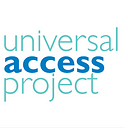The Global Gag Rule Impacts Hard-Fought Progress On HIV/AIDS Relief
By Seema Jalan
When most people hear about the Global Gag Rule — the harmful U.S. policy that withholds funding from any international NGO that provides services for, information about, or references for abortion, even where it is legal, and even with its own private funds — they often think about the devastating impacts it will have on women’s and girls’ access to reproductive health and family planning services. And they should, because women lost access to contraceptive services and had more unintended pregnancies, and research shows the policy increased abortion rates (mostly unsafe abortions) last time it was enacted while reducing the availability of critical health care services for the world’s most marginalized women and girls. It’s been illegal for U.S. funds to pay for abortion since 1973, so what the Global Gag Rule really does is cut off funding for quality, accessible health care, especially in poverty-stricken areas of the world where it is needed the most.
This time around, the policy is even more destructive. The Trump administration not only reinstated the Global Gag Rule, it expanded it — by 15 times. Now, it applies to all U.S. global health assistance — a total of about $9 billion, including international family planning and reproductive health, which is about $600 million. For the first time, funding for maternal and child health, nutrition, malaria, tuberculosis, infectious and tropical diseases and more is held hostage, and providers are forced to choose between offering comprehensive health care or receiving critical U.S. funding. Importantly, roughly two-thirds of the funding affected by the expanded Global Gag Rule is for HIV/AIDS programs around the world, under the president’s Emergency Plan for AIDS Relief (PEPFAR). PEPFAR, created in 2003 by the George W. Bush administration, has received broad bipartisan support and has been successful in reaching more than 13.3 million men, women, and children with lifesaving antiretroviral treatment. The latest PEPFAR data also shows significant declines in new HIV diagnoses among adolescent girls and young women for the first time.
What does this all mean for global health headway on HIV/AIDS? In short: The expansion of the Global Gag Rule will roll back hard-fought progress and long-standing U.S. leadership on HIV/AIDS relief around the world, especially for key populations on the front lines of efforts to fight HIV. It reverses global efforts to integrate HIV and sexual and reproductive health programs and services, a best practice in health care service delivery as there may only be one clinic serving an entire population. While globally, the number of HIV-related deaths has been cut nearly in half since the height of the epidemic, HIV is still a leading cause of death of women of reproductive age in low- and middle-income countries, particularly in Africa.
It’s too soon to say just how far back this policy will take us. But if history serves as any indicator, it is likely to be tragic. In its previous iterations, when it applied to reproductive health and family planning funding and PEPFAR was not included, the Global Gag Rule sparked a ripple of impact on efforts to prevent and treat HIV/AIDS. Research by Fordham University under George W. Bush’s Global Gag Rule documented the broad impact of the policy on community-level HIV/AIDS services and condom distribution programs in Kenya. For example, having lost U.S. funding under the policy, Marie Stopes International (MSI) closed its clinic in Kisumu, a region in Kenya with the highest HIV infection in the country. The clinic’s more than 400 clients, including HIV/AIDS patients, were left without accessible, quality health care as there were no comparable alternatives.
The MSI clinic closure in Kisumu is just one example of the harm the Global Gag Rule can have on a broad range of health care for those who need it most; it’s a false dichotomy to have to choose between providing lifesaving HIV/AIDS therapy or lifesaving reproductive health services. Under the expanded policy, closures like this will be just the tip of the iceberg, and in the end, the fundamental right to quality, accessible health care for vulnerable families and communities will be jeopardized and our country’s progress on global health will be undermined.
As we continue to track the impacts of this reinstated and expanded Global Gag Rule, our elected officials — and we, as the constituents that hold them accountable — must ensure that the health and rights of the world’s most marginalized people are not forgotten. It’s the best of American values.
Learn more about the Universal Access Project and get involved at www.universalaccessproject.org.
